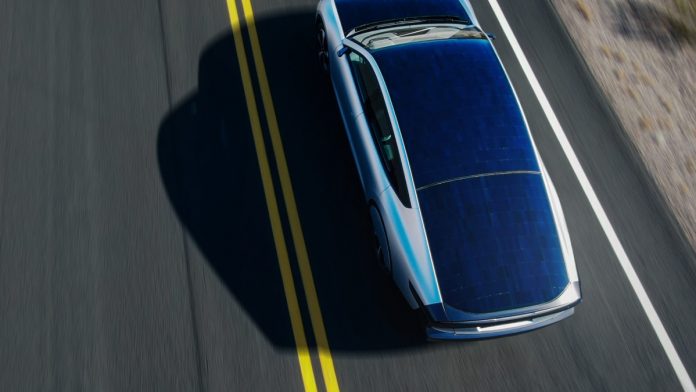Dutch companies Lightyear and DSM NV are working to start commercial production of the former’s electric vehicle solar roof.

The 5m² roof consists of a double-curved, glass-covered solar panel backed with maximum power point trackers. “The roofs are specifically developed for … application on vehicles, focusing on three points … design: High solar cell coverage ratio, durability and safety that fits the requirements for road-going vehicles – and seamless integration to fit the vehicle,” Lightyear chief strategy officer Martijn Lammers told pv magazine.
The roofs, which will be manufactured in Helmond, in the Netherlands, feature interdigitated back contact (IBC) solar cells supplied by U.S. company SunPower and conductive backsheets from DSM NV, a Dutch health, nutrition and materials multinational.
“Our backsheets are well suited for the integrated and double-curved solar modules that fit in the aerodynamic design of the car,” said Nathan Arbitman, strategy director at the DSM Advanced Solar division of the business. “With the application of lossless and aesthetic, back-contact technology to high-tech solar roofs for automotive, we demonstrate the viability of this technology for high-end solar systems, like DSM did already for high power modules for the residential market.”
The electrical contacts are placed at the back of the solar cells, which helps to reduce cell-to-module losses, delivering 3% increased power output, according to the manufacturer. “Furthermore, the backsheet enables the solar roof to be made in an aesthetic curved shape,” Arbitman added.
Commercial
The partner companies plan to expand from the manufacture of prototype products into full commercial output. Lightyear’s Lammers said: “We do not disclose production capacity or other financial data but we are thinking big. The aim is to deliver a solution for customers from the automotive and public transport sector whereby the integration of a solar roof could represent a smart investment.”
The partner companies are focusing on the the European and U.S. markets, with Arbitman adding: “We are making prototype modules for selected applications to determine the feasibility and value proposition and get market feedback.”
EV start-up Lightyear stated a year ago that it expected its sporty-looking Lightyear One model to enter mass production next year.






